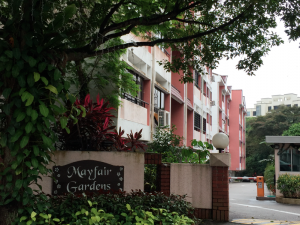Colliers International on 23rd April, released its Asia Market Snapshot Q1 2018 report with a detailed overview of all property sector segments’ performance across 15 Asian markets during the first quarter of 2018.
While the first quarter of 2018 proved unsettled, with concerns about a global trade war and heightened global market volatility, Asia’s property sector remains buoyant overall, supported by the region’s robust growth and forward-looking government policies.
Trade war between USA and China could spring nasty surprise on en bloc mania
Large scale infrastructure investments in countries such as Japan, China and Indonesia will continue to create opportunities for investors, while major markets such as Hong Kong and Singapore are likely to benefit from the perception of property as a safe haven during uncertain times.
Ms. Tang Wei Leng , Managing Director at Colliers International, says, “Singapore’s investment market, led strongly by the residential sector, continued its positive momentum in the first quarter of 2018. Developers’ appetite for sites remained high, demonstrated by keen participation in both the collective sale market and state land tenders. The residential and commercial sectors will remain active in the second quarter. On the back of strong enquiries from investors for commercial assets, we anticipate some transactions to take place in the forthcoming quarters.”
Collective sale fever in Singapore
For the property sector of Singapore, a total of 17 residential collective sale sites with a combined value of S$5.83 billion were transacted in Q1. The value of these deals accounted for 71.7% of the S$8.13 billion generated from the 27 residential collective sale transactions during 2017.
En Bloc Sales Process Singapore – A Definitive Step-by-step Guide
 More developers are likely to acquire residential land, especially in well sought-after and prime locations, amid healthy home sales and growing confidence in the residential market. Colliers anticipates that the residential collective sale market in Singapore will stay active at least for the remainder of the year, paving the way for total transaction value to surpass that of 2017.
More developers are likely to acquire residential land, especially in well sought-after and prime locations, amid healthy home sales and growing confidence in the residential market. Colliers anticipates that the residential collective sale market in Singapore will stay active at least for the remainder of the year, paving the way for total transaction value to surpass that of 2017.
Infrastructure set to surge
Many Asian governments are pursuing ambitious infrastructure projects that have the potential to transform property markets. In Indonesia, for example, an unprecedented government spending drive has boosted the outlook for developments around up and coming transportation hubs. India, meanwhile, has taken steps to encourage the construction of affordable housing, which should lend momentum to the residential sector, while Japan’s property market is expected to remain strong in the run-up to the 2020 Tokyo Olympics. In Chinese cities such as Beijing and Chengdu, steps to improve accessibility and connectivity are enhancing the appeal of decentralised areas, which have seen a marked pickup in buying activity.
Volatility may lead to upside
As political and economic uncertainty dims the outlook for other assets, prime Asian property markets like Hong Kong and Singapore could see more capital inflows. Both the mass and luxury residential markets in Hong Kong continue to hold up well, with a house at Mount Nicholson recently sold for the equivalent of over US$19,000 per square foot. Singapore has seen a surge in residential collective sale activity with over US$4 billion transacted in the first quarter of 2018 alone, approaching three-quarters of the total last year.
Seoul, Bangkok set new records
Investment activity looks set to pick up in Seoul’s prime office market, with several major deals likely to close in the coming months. The recent purchase of the K-Twin tower by Samsung SRA Asset Management set a new record for South Korea’s commercial property sector, recording a unit price of over US$7,000 per sq m. In Bangkok, meanwhile, the sale of the British Embassy site in the commercial heart of the city for US$D591 million marked the largest land deal in Thailand’s history.
Positive outlook for Shanghai
Shanghai remained China’s most active property investment market in the first quarter, with deals totaling over US$2 billion. While recent steps to tighten control over lending to the real estate industry may squeeze some segments of the market, projects with stable income streams will continue to attract investor interest, particularly those aligned with the government’s efforts to upgrade the city’s industrial base.
Industrial, logistics witness strong growth
As regional governments increase their focus on developing or revitalising local industries, industrial property markets are looking more dynamic. In Vietnam, where the industrial sector expanded at a rate of nearly 10% in the first quarter, investors are actively searching for warehousing and logistics opportunities. Similarly, in Myanmar where manufacturing FDI remains close to all-time highs, the sector is poised for strong growth as more companies look to set up shop in the country. The high future growth and development potential of these and other Asian markets mean this is likely to remain a major investment theme for the long term.
To view a copy of the Asia Market Snapshot Q1 2018 report, click here.
—
If you are considering the purchase of properties in key growth areas and want to get the best home loans, we at icompareloan.com can provide invaluable advice which can help you save time, energy, and money.

